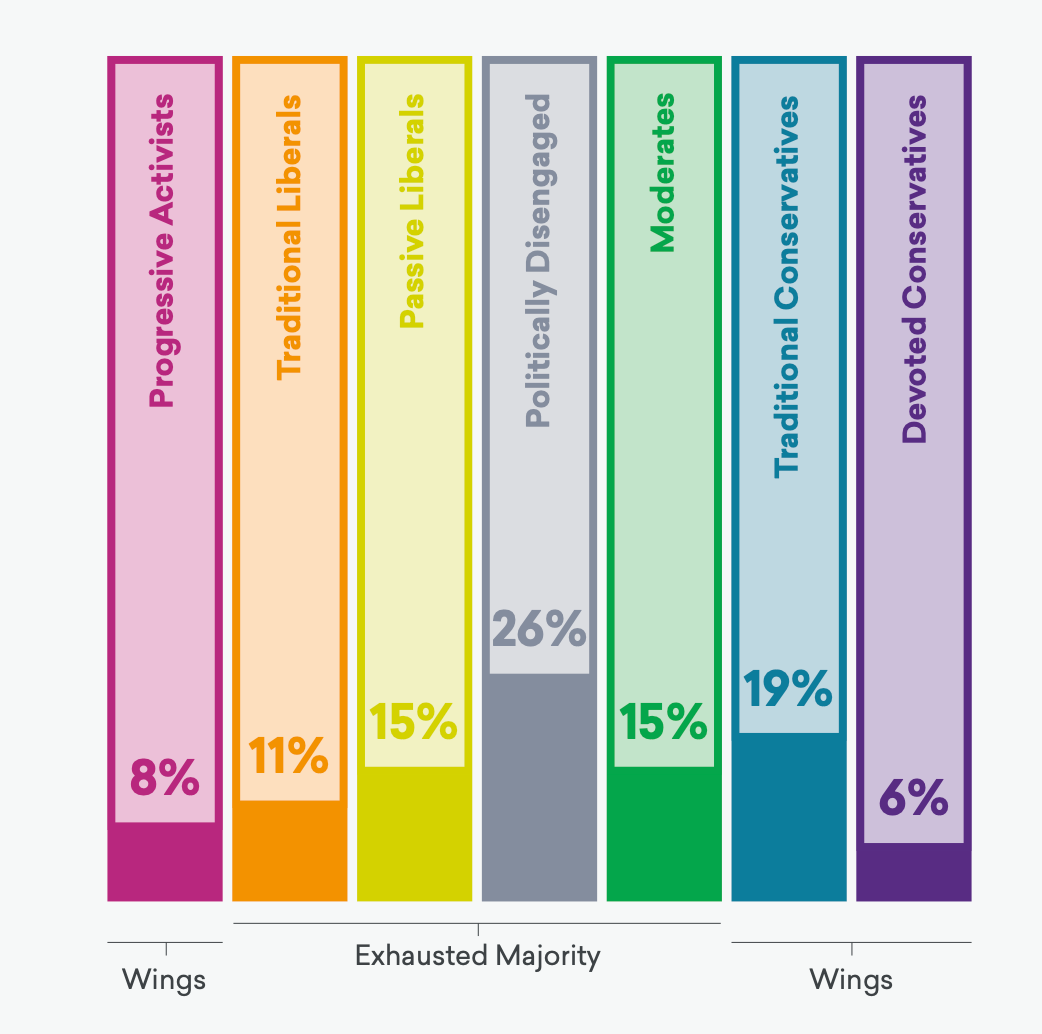Is Casar's populist prescription right?
Greg Casar moves up in the world.

I originally meant for this newsletter to just be a quick plug of the Casar story along with some other stuff about the District 7 runoff, but I guess it turned into a lengthy rant about national politics. Oh well. Enjoy.
Greg Casar has only one term under his belt on Capitol Hill and he's already scored a high-profile perch as chair of the Congressional Progressive Caucus. The 97 members of the group elected him to replace outgoing chair Pramila Jayapal of Seattle.
The Progressive Caucus is pretty self-explanatory: it's a group of liberal Democrats who try to work together to advance a progressive agenda in Congress. They were a key force in shaping the size and scope of Biden's signature legislative accomplishments (the climate bill, the infrastructure bill etc).
Naturally, as Democrats ponder how to recover from last month's defeat, the media is wondering what Casar thinks the antidote to Trumpism is. In every article I've seen him quoted in, he clearly states that the party's central message should be class-based economic populism, but the extent to which he is willing to criticize some of the left's cultural impulses varies.
In an interview with the Austin Chronicle, for instance, he said that instead of surrendering on certain culture wars, notably transgender issues, Democrats need to remind voters that "the reason [Republicans are] doing that is so they can give donors another tax break and keep your taxes high."
But talking to NBC, Casar appeared to go further, conceding that progressives need to be more cautious in how they approach polarizing cultural issues.
Casar laid out his vision for the future, saying that Democrats need to return to their roots as the party of the working class. That means welcoming voters who disagree with the left on cultural issues and not being “seen as preachy or disconnected.”
....Casar believes the median voter stands to the left of the Democratic Party’s mainstream on economic issues, and he admitted that, at least today, the median voter is more culturally conservative than his party. He said the solution is to lead without getting too far ahead of where that voter is on social issues.
....“I think we should lead the country, but we should never be more than an arm’s length ahead,” Casar said. “If we get more than a couple arms lengths ahead of the country, then you’re vulnerable to attacks from the Republicans.”
Well, it's hard to argue with any of that. Economic populism has always been Casar's top focus, but I think that he, like many other progressives, saw discourse about racial and LGBTQ justice as key pillars of progressive advocacy and a logical response to Trump, the avatar of white male grievance. Moreover, they likely viewed complaints about "wokeness" or "PC culture" as little more than a niche grievance of the privileged.
Perhaps nothing better captures this delusion than a conversation I had on Election Night with a local Democratic politico, who dismissed my concerns about signs in the betting markets that Trump was going to. The betting markets are just a bunch of white men, she explained. "We're going to win because this country is not just white men."
Well, you know the rest of the story. Trump got huge boosts in support among Hispanics as well as meaningful increases in support among Blacks and Asians. Clearly, many of those who the racial justice discourse seeks to defend are either turned off by it or indifferent to it. Despite incessant warnings from the left, they clearly don't believe that their race or ethnicity makes them uniquely vulnerable in Trump's America.
In fact, it has been abundantly clear for a long time that progressive identity rhetoric has very limited appeal. A study published in 2018, Hidden Tribes, based on views collected from more than 8,000 Americans, shed light both how identity politics became so intertwined with the Democratic brand and why that's such a bad things for Democrats. The study sorted the participants into eight political tribes based on their views. On the far left is a group, "Progressive Activists," who account for only 8% of the population.

Progressive activists were the only tribe where a majority did not agree that "political correctness is a problem in our country." Only 36% agreed, compared to more than 70% of traditional liberals, more than 80% of "passive" liberals and the politically disengaged, and about 90% of moderates.
Progressive activists were twice as likely as the average American to have a college degree, more than twice as likely to list politics as a hobby and –– here's the kicker –– were 11% more likely to be white. So it's not hard to understand that this sliver of the electorate happens to be hugely overrepresented in academia, media, the nonprofit world, political donors etc. This is a group that is very helpful if you want retweets, political donations or attention from the media. It's not a group you want to listen to too much though if you want to win national or state general elections. In fact, it might be to your advantage to explicitly antagonize them from time-to-time.
(Now, in most Austin City Council races the progressive activist tribe is a very useful one to have on your side, but it's usually still not enough)
And to be fair, I think that most Democratic politicians, even very progressive ones, recognized that they had misread the room on identity politics during the first Trump era. This time around, Kamala Harris valiantly resisted Trump's sleazy effort to bait her into a debate about race. And the rabble rousing address that AOC delivered at this year's DNC was a vast improvement over the two minutes of critical theory mumbo jumbo she offered at the 2020 convention.
For a number of reasons, however, Dems couldn't shake the perception that they are not focused on Americans' day-to-day economic struggles. For instance, the organization More in Common recently asked 5,000 voters to both share their top three political priorities and to guess what the top three priorities were of people in the other political party.
When asked about Republicans’ priorities, all major groups, including Democrats and independents, correctly identified that either inflation or the economy was among Republicans’ top three priorities.
By contrast, every single demographic group thought Democrats’ top priority was abortion, overestimating the importance of this issue by an average of 20 percentage points.
By far the most notable way that Democrats are misperceived relates to what our survey referred to as “LGBT/ transgender policy.” Although this was not a major priority for Democratic voters in reality—it ranked 14th—our survey respondents listed it as Democrats’ second-highest priority.
Now, part of this misperception is likely due to the successful efforts of the GOP to brand Dems as social justice radicals. But I think it also has a lot to do with the progressive discourse that exists independent of Democratic campaigns. It's academics, student activists, cable news personalities, celebrities, and, perhaps above all else, a couple million political hobbyists on social media. Democratic pols can try to lead by example and guide these people towards more productive political discourse, but they can't control them.
More importantly, what Democrats need to understand is that a successful populist economic message is not just a series of slogans and policy positions. Talking about "wealth inequality" or "economic justice" resonates with overeducated progressives who are already on your team. It probably falls entirely flat with the mostly apolitical working stiffs you're hoping to get on board. You need to offer specific examples of issues that people can relate to –– rent hikes, utility bills, credit card fees, health care premiums, child care costs –– and tell them how you're trying to lower them.
A successful economic populist message could be decidedly left-wing, but it doesn't have to be. People feel cheated, but that doesn't mean they're looking for a revolution.
What's more important is to tell a story with good guys and bad guys that people who don't closely follow politics see themselves in. The good guys, of course, you, the regular Americans working hard to afford groceries. The bad guys are the corporate kleptocrats and their toadies in government rigging the game to screw you over. This story needs to be told incessantly along with concrete examples of bad guys in business and politics. They are not hard to find.
As luck would have it, the incoming Trump administration is a full-fledged orgy of bad guys drooling to loot the treasury for their interests and cut the programs that the rest of us count on.
The case against Trump should never have been that he is unhinged, offensive and a threat to democracy, even if all of that is true. The case against him should focus on what a normal politician he is –– he is a loyal servant of the corrupt establishment he claims to be taking on. His only legislative accomplishment was a big tax cut for the rich. He promised to take on Big Pharma and then let them continue gouging Medicare. His doofus son-in-law did the Saudis' bidding in exchange for a cool $2 billion dollar investment in his bullshit private equity company. And now he's handed over the keys to our government to the caricature of crony capitalism, Elon Musk, the trust funder illegal immigrant who not only made billions sucking at the teat of the American taxpayer but is intimately entwined with the Chinese government.
These clowns are very, very beatable. Will Greg Casar be the one to beat them?
If somebody forwarded you this email, please consider subscribing to the newsletter by visiting the website.





